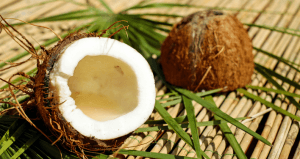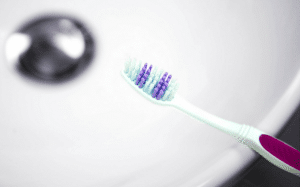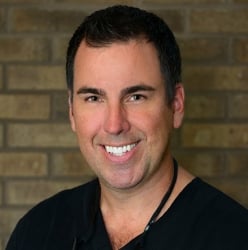Charcoal Toothpaste – An Oxymoron?
Charcoal dentifrices, including toothpastes, gels, liquids and toothpowders, have become a rapidly emerging fad promising whiter teeth by using a more natural ingredient – activated charcoal. It’s ironic that people are turning to a toothpaste that looks like black mud for whiter teeth and a healthier, brighter smile.
Many activated charcoal products for teeth are trending on social media sites like Instagram and on natural health and home remedy websites and blogs. While a lot of online influencers claim charcoal toothpastes work, and post pictures of themselves using it, there are health risks involved in using activated charcoal as part of an oral health regimen. Whether you’re using it now or are considering it, you may want to learn what dental professionals are saying about this alternative toothpaste, and find out if it really works and what risks are involved.
Table of Contents
- What is Activated Charcoal?
- Origins of Charcoal Toothpaste
- A Professional Opinion of Charcoal Toothpastes
- Other Ways to Whiten Your Teeth
What is Activated Charcoal?

According to the US National Library of Medicine, “Common charcoal is made from peat, coal, wood, coconut shell, or petroleum. “Activated charcoal” is similar to common charcoal, but is made especially for use as a medicine. To make activated charcoal, manufacturers heat common charcoal in the presence of a gas that causes the charcoal to develop lots of internal spaces or “pores.” These pores help activated charcoal “trap” chemicals.
Activated charcoal is used to treat poisonings, reduce intestinal gas (flatulence), lower cholesterol levels, prevent hangover, and treat bile flow problems (cholestasis) during pregnancy.”
Origins of Charcoal Toothpaste
Most of us are familiar with the common medical use of activated charcoal to treat poison, including toothpaste overdose! Charcoal is known to absorb some toxins and keep them from spreading in the body. It is a cheap and natural medicine when used that way. People have been using a powdered form of charcoal as a key ingredient in toothpaste dating back to Roman times and in homemade toothpastes since the 19th century, with the idea that the porousness of charcoal would help scrub teeth clean. In terms of whitening teeth, which is associated with cleaner teeth and a better-looking smile, the charcoal toothpaste is thought to erase stains by trapping surface debris and impurities as well as absorb harmful bacteria, resulting in a healthier cleaner mouth. Makes sense, right? Not so fast…
A Professional Opinion of Charcoal Toothpastes

As for its use as toothpaste, the American Dental Association (ADA) cautions that while it may take a while to notice the negative effects, ultimately, activated charcoal is abrasive and will deteriorate the tooth enamel, something that cannot be restored once it is gone. When this happens, that whiter, brighter look that people are going for is replaced by the yellowish layer underneath the enamel, called dentin. So not only does it erode precious tooth enamel, the result is the opposite of what people are using it for.
Another risk is that only using charcoal toothpaste may not help prevent cavities the way other toothpastes do because they lack other important and active ingredients like fluoride. Also the abrasiveness of the charcoal can roughen the texture of the teeth making it more likely for bacteria to stick to the surface, which can lead to an increase in plaque build-up, putting you at risk for more cavities and periodontal disease (U I Pertiwi et al 2017 J. Phys.: Conf. Ser. 884 012002).
A review called, Charcoal and charcoal-based dentifrices, published by The Journal of the American Dental Association states, “Dental clinicians should advise their patients to be cautious when using charcoal and charcoal-based dentifrices with unproven claims of efficacy and safety.”
Other Ways to Whiten Your Teeth
Brushing your teeth with activated charcoal toothpaste is not only ineffective, it can be harmful. So what are some better, healthier alternatives? One of the easiest and least expensive ways to whiten teeth is using a whitening toothpaste that contains hydrogen peroxide. We at Sarasota Dentistry can talk to you about the different products on the market and also the variety of teeth whitening treatments, including other things you can do yourself at home, or you may opt for an in-office teeth whitening treatment. Factors to discuss are how dramatic you want the results to be and how quick, as well as your budget.
More studies need to be conducted on charcoal toothpaste, but the consensus so far in the dental field is that it is causing more harm than good. We invite you to talk to us about the claims you’re seeing on websites and social media about oral care and teeth whitening so we can give you our professional opinion and add to the conversation so you can make the best, most informed choices possible.
- Dental Implant Pros and Cons - August 26, 2023
- Receding Gums Stages - August 12, 2023
- When Is It Too Late for Gum Grafting? - July 8, 2023


